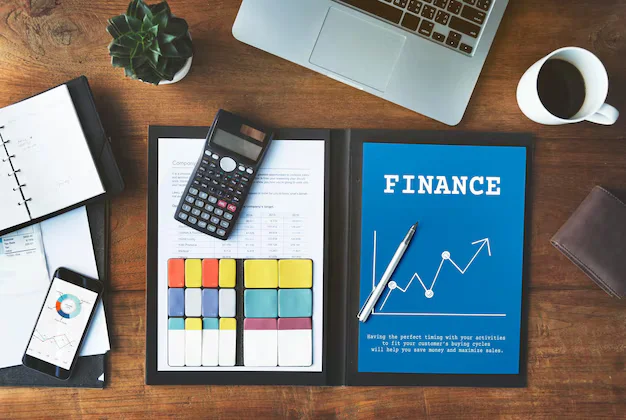8 ways to become financially responsible
It is one thing to make money and another thing entirely to make rational decisions that serve your financial interests long-term. Therefore, we are financially responsible when we make decisions and carry out actions that encourage our financial progress. On the flip side of things, responsibility is a word most people probably don’t want to hear.
So why do I need to be financially responsible, you might ask? To gain something profound, and that is financial security. To always feel confident and relaxed that no matter what happens, you have it covered because you made financial decisions that never keep you out of money. Here are eight ways to become financially responsible and enjoy that financial security you crave.
Eight ways to Become Financially Responsible

-
Never spend more than you earn
As a financial habit, you should aim to spend below your income to maintain financial stability and nurture good financial habit. That way, you put yourself in a position of financial confidence that comes from having some reserve. If you have to cut down on certain expenses to achieve this, then go for it. After reading a few personal finance books, you will understand the significance of two rules that every personal finance coach repeats.
Maintain constant awareness of where your money is going and prevent allowing your expenditures to exceed your revenue. The easiest ways to accomplish this are to budget and create a personal spending plan to keep track of your income and expenses and be financially responsible.
You'll never get ahead if you spend more than you earn, no matter how much or how little you make. Opting to spend less rather than earn more can be a smart move towards financial stability, as even minor adjustments like brewing coffee at home can significantly reduce your living expenses and reinforce good financial habits.
Large financial sacrifices are not always required to achieve financial goals; even minor tweaks to monthly budget planning can significantly enhance your financial future. Understanding the monthly expenses of buying coffee daily can be an enlightening aspect of money management, prompting financial decisions that enhance your financial journey and promote a financially responsible routine.
Small adjustments to your regular expenses, like brewing coffee at home, are entirely within your control and can affect your financially responsible condition just as much as a pay boost can, which is mostly out of your boss's hands.
2. Set financial goals and realistic budgets
To ensure financial security, setting clear financial goals and establishing a realistic budget are essential steps towards adopting financially responsible habits. By setting financial goals, you need to work out where you want to be financially strong.
To help achieve this, you need a realistic budget that fits your long-term goals, ensuring you maintain a financial routine that supports your overall financial stability. And to help you achieve that, you need a budget to stick with.
Your budget needs to be realistic so that it doesn’t become restrictive over time and generally counterproductive. Therefore, you have to make your budget according to your earning and needs. And your goal is to aim for a certain balance between what you earn and how you spend it.
3. Nurture your savings

Maintaining a robust savings account is a crucial aspect of being financially responsible, enhancing your financial well-being and preparing for unexpected costs. As a result, it is essential to always think of how much you can put away for savings in your financial life because you never know.
Some people like to think of this as building an emergency fund; whatever the case, nothing builds self-reliance than having a financial backup. A popular opinion on building savings is to pay yourself first when you receive your paycheck.
4. Be Careful about Debt.
Achieving financial stability is challenging when overwhelmed by high-interest debt, making it crucial to avoid unnecessary spending and focus on financially responsible decisions. There are loads of ways to incur debt, from credit cards, overdrafts, and all schemes that allow you to make purchases and pay later for a percentage.
The fact is that these avenues charge you a certain percentage which enriches them at your expense. Other sources of debt are borrowing from friends and family and loans from financial institutions and corporate entities.
To become financially responsible, you must avoid debt, by all means, pay up all existing debt and only borrow if you need the funds for an activity that will generate the funds to pay back the loan and keep you debt-free.
Accruing high interest debt from credit cards can hinder your progress towards financial independence, making it essential to control spending habits and maintain a credit history free from excessive liabilities. Accrued interest and missed payments can severely damage your credit score, undermining your financial decisions and hindering your financial journey towards stability.
Debt repayment minimizes financial hardship and monthly payments. Managing your finances wisely allows you to maximize the benefits from future income, ensuring you can meet your long term financial goals and maintain a healthy credit report. Keep track of your credit card, student loan, and other debts. Don't take on more debt than you can handle, and prioritize repaying high-interest loans.
You don't want to get back into debt after paying it off. Some customers improve their money management by opting for debit cards over credit cards, reducing risk tolerance and preventing high interest charges from accumulating. Debit cards are linked to your checking account and help you to avoid overspending. You can get up to 15x points by opening a rewards debit card.
5. Do Not Hold off on the Bills.
Delaying your monthly bills can compromise your credit score and financial future, so it's vital to adopt a financially responsible manner of paying bills on time to avoid financial pitfalls. Besides, it is a subtle way of incurring debt over your finances since you must pay the delayed bills later.
Moreover, delaying paying your bills might result in extra fees and higher interest rates, which could impact your overall financial situation and your ability to make best interest decisions financially. In the long run, delayed bills do not serve your interest towards becoming financially responsible.
6. Create Alternative Means of Income or Revenue
An alternative source of income is beneficial for both personal finance and business and leads towards becoming financially responsible. The rationale behind seeking alternative means of income is to increase your chances of boosting your capacity to save more.
Whether you want to engage in a side hustle or get another job or open a business, or a start-up, there is no end to creating an alternative source of income. If you are already running a business, you might seek other ways to expand your business. And provide additional services and products through value addition which will create an avenue for extra cash inflow.
Investing through an investment account is a reliable way to achieve long term goals and retire sooner, especially if you consistently manage your retirement account with informed decisions about interest rates Purchasing assets, such as a home purchase, puts your money matters to work and allows your finances to grow, often varying based on market conditions and your financial literacy.
Some investors prefer employers offer stock options or investing in real estate, leveraging their investment account to potentially increase their retirement account balances over time, while others prefer to put it in a Current Savings Pod with a 4.00% APY.
The Savings Pod, offering a 4.00% APY, is suitable for both emergency savings and impulse buying reserves, aligning with prudent financial decisions over three to six months. Stocks and real estate can increase greatly over time, but volatility can be stressful if you invest the majority of your income in those assets.
Developing an investment plan based on your risk tolerance and interest rates will assist you in making informed decisions that match your preferences, ultimately benefiting your financial decision-making process and enhancing your ability to avoid debt.
7. Keep Strict Records of your Financial Activities

Strict financial routine record-keeping is crucial for maintaining a positive credit history and good credit, which are essential components of being financially responsible. It is vital to maintain a financial routine and budgeting process, keeping track of money matters and ensuring each financial decision contributes to your long term goals.
Tracking your credit scores is another way to stay on top of your finances. If you take control of a business, you can use online paystub and invoice generators to track your financial transactions, an essential part of a financially responsible means that helps maintain a positive credit history and manage credit card balance.
And set your business up for success through business process automation. Online pay stub generators like Paystubsnow not only track utility bills to validate residence but also help you manage your monthly mortgage payment, a crucial aspect of maintaining a good credit history.
8. Seek Ways to Increase your Financial Intelligence
Many people struggle with being financially responsible because they lack sufficient financial literacy, which is essential for making informed decisions and avoiding common pitfalls like impulse buying and avoiding debt.
However, you need not go to college to obtain a degree in any financial management courses to achieve this. Enhancing your financial literacy by engaging with financially savvy people and pursuing informed decisions will empower you to avoid overspending, essential for those living paycheck to paycheck and managing a car loan.
Furthermore, the internet is replete with so much information on financial management. All of which you can take advantage of to improve your understanding of how money works. Seek books of financial leaders to bolster your financial literacy, a step that serves your best interest and prepares you for three to six months of financial challenges.
How Paystubsnow makes you Financially Responsible by keeping track of your financial records
Whether it is for personal finances or business, there is no denying the relevance of proper documentation. Paystubsnow, a leading online paystub generator, helps you manage your monthly mortgage payment and maintain a credit card balance, fostering financially responsible means of handling personal finance.
In addition, you can also generate documents for utility bills with our utility bill generator, just in case you need to show proof of your residence. Other services available on Paystubsnow are 1099, w-2 forms helping you avoid debt and manage your budgeting effectively, crucial for those living paycheck to paycheck or managing a car loan.

